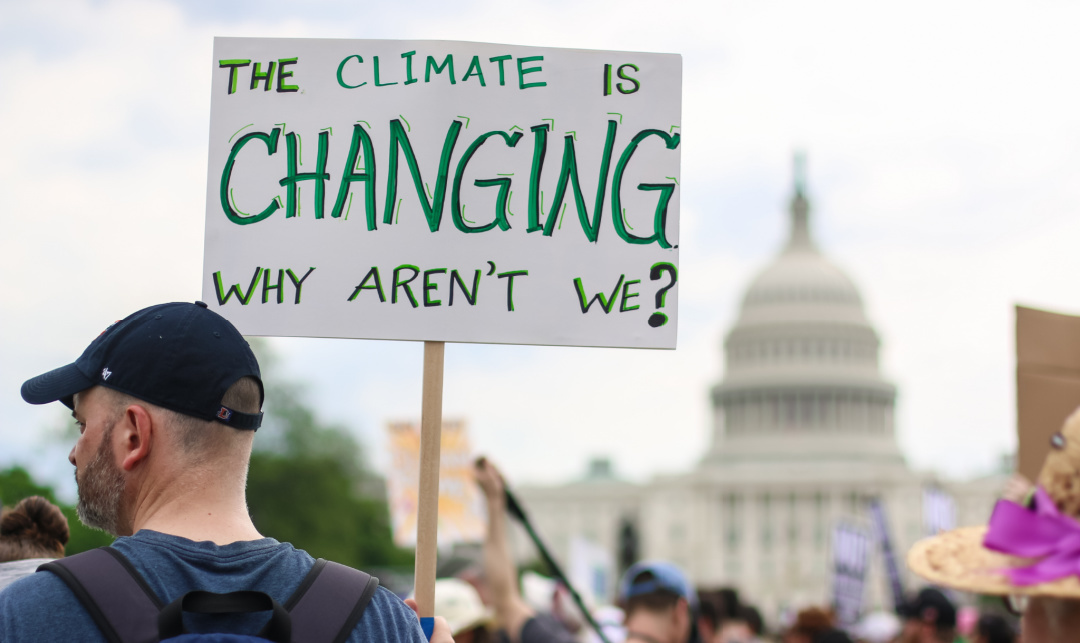
Our Next Battle Is Already Here
Everything is aligned for a big bang of business.
We’re at a pivotal time in our world’s history. We are finally starting to get past the pandemic that devastated many lives. To get here, we—both as a nation and the world—needed to come together, unified, to win this battle.
Thanks to trusting science, good leadership, and public-private partnerships, we are slowly getting back to normal with the vaccine rollouts. Now, it’s time to fight the next looming enemy that threatens the entire human race: climate change.
Easier said than done, of course. But there’s never been more momentum behind fighting the climate crisis than there is now. From local city councils all the way up to the Biden/Harris White House, we’ve seen a new emphasis on climate change.
Bill Gates has proposed a simple yet realistic plan in his latest book, How to Avoid a Climate Disaster, to cut our current carbon emissions from 51 billion tons to zero, all by 2050, thus avoiding the looming and catastrophic climate disaster.
These numbers sound daunting, and even Gates thinks this endeavor is a tall order. In a recent virtual town hall hosted in Los Angeles, he compared the challenge the world is facing with climate change to the challenge of supplying every desk in the country with a computer (as the co-founder of Microsoft, he might know a thing or two about that particular challenge).
In his book, Gates says he’s an optimist about this ambitious goal because he knows what technology can accomplish (again, he knows a thing or two in this arena) and because he knows what people can accomplish.
For those reasons, I, too, am hopeful. There are encouraging people and organizations around me every day that give me a reason to believe that this is an attainable goal.
As I mentioned before, trusting science, following good leadership, and counting on public-private partnerships were the guiding principles that led our nation’s COVID-19 response. These are the same qualities we need in order to help win the climate change battle.
Again, it’s not going to be easy. Gates added that this would be a bigger challenge than putting people on the moon. It’ll be the biggest challenge we face.
Here in Los Angeles, one of those public-private partnerships is already well underway. AltaSea at the Port of Los Angeles is leading the charge on ocean preservation and innovation by creating a world-class campus for the blue economy and a new hub for ocean education and business from historic warehouses at the Port of Los Angeles. AltaSea is the only urban ocean clean tech incubator in the nation partnering with a consortium of universities.
By investing in the blue economy, AltaSea is giving Los Angeles, one of the most polluted cities in the country, an opportunity to have measurable impacts on mitigating climate change. Angelenos now have an opportunity to grow their careers while being a part of solutions to the challenges that lie ahead.
Take Diane Kim, co-founder and CEO of Holdfast Aquaculture. After earning her undergraduate degree and PhD in marine biology and biological oceanography from my alma mater, the University of Southern California, she went on to start an incredible company that is focused on promoting sustainable aquaculture. This is crucial, because sustainable aquaculture produces protein with little to no carbon emissions, significantly decreasing our carbon footprint. Her efforts are keeping the oceans clean and providing a healthy and local source of food.
Everywhere I turn, I’m inspired by groundbreaking people and organizations like this. It gives me hope.
Again, it’s not going to be easy. Gates added that this would be a bigger challenge than putting people on the moon. It’ll be the biggest challenge we face.
In the introduction to his book, Gates lists three components needed to accomplish any major undertaking: ambition, big goals, and a concrete plan to achieve those big goals. We already had the first two elements. Now, thanks to Gates, we have a plan.
How to Avoid a Climate Disaster lays out an ambitious road map forward. Gates offers a practical framework for achieving zero emissions, outlining the federal policies, corporate accountability, and individual efforts that are crucial for reaching this goal.
As we work to reach this goal, we need to understand that for most of us who have been on this planet a lengthy period of time, the world now belongs to our children and our children’s children. This realization should be our chief motivation.
As Gates writes, “That’s it. Let’s get started.” I used to always say, “It can be done.” Now, I say, “It will be done.”
Let’s get to work.
Melanie Lundquist is an activist philanthropist and co-founder of the Partnership for Los Angeles Schools. She is a member of the Initiative to Accelerate Charitable Giving and a signatory to the Giving Pledge
